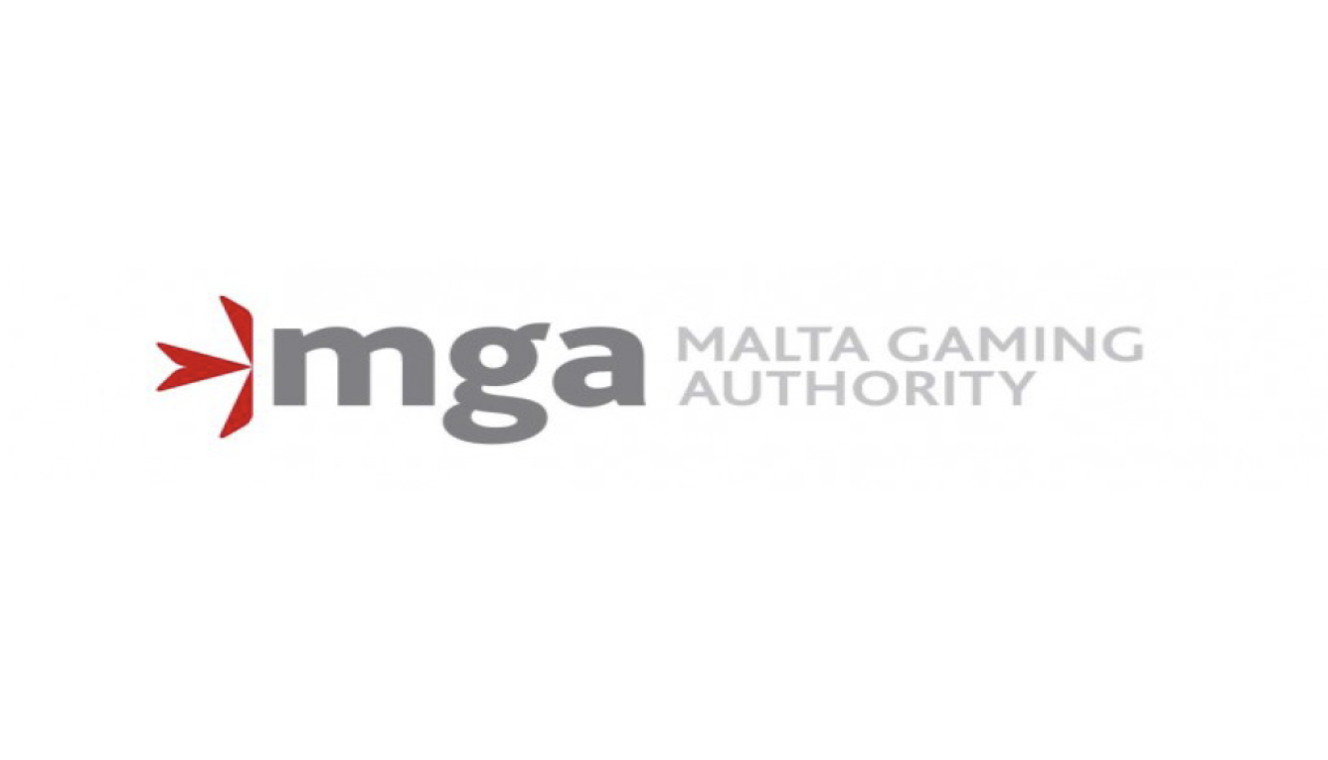Malta License: The Gold Standard in Casino Industry

The Maltese gambling license stands out as the gold standard. Acknowledged globally, platforms operating under the auspices of the Maltese Gambling Authority gain easy access to numerous benefits. These encompass facilitating the opening of bank accounts, entering third-party agreements, and providing services to international clients.
However, this advantage comes at a cost. The application process for a Maltese online gambling license is protracted, expensive, and intricate. Applicants must submit extensive paperwork, exercise patience, and even engage in personal meetings with regulatory authorities. Nevertheless, for large gambling enterprises or established brands seeking an EU presence, this effort proves worthwhile.
Key Advantages of the Maltese Gambling License
Prestige:
The Maltese gambling license is globally recognized as one of the most esteemed. Holders of this license are trusted to operate transparently, fairly, and honestly, adhering to EU regulations. Obtaining the Maltese gambling license signifies that the operator has undergone rigorous scrutiny.
Player-Friendly Environment:
Given that iGaming is integral to the Maltese economy, the local workforce possesses high expertise and experience in the gambling sector. Malta boasts a vast talent pool of English-speaking professionals from Malta and Europe. Additionally, the country is home to numerous service providers in software, hardware, marketing, data, and advertising.
Player Trust:
Displaying a Maltese gambling license on your platform strengthens player trust. In a fiercely competitive market, gaining and maintaining customer trust is crucial. Trust in the Maltese gambling license is fostered by high player protection standards and stringent control mechanisms of the Maltese Gambling Authority. Moreover, the license fully complies with all applicable EU laws.
Tax Benefits:
While Malta has a corporate tax rate of 35%, there is a full imputation system. Shareholders are entitled to a tax credit equal to the tax paid on profits from which dividends are distributed. The most common tax credit is the 6/7 tax credit, leading to an effective tax rate of only 5% under certain circumstances. Additionally, there is a gambling tax on revenue from gambling by players residing in Malta, set at 5%.
Stability:
Malta has been a full EU member since 2004 and is also part of the British Commonwealth. It is a highly stable society, both socially and politically. Economically, Malta has excelled with a consistently strong economy driven by technology, financial services, and innovation. The Maltese government is known for providing an adaptable regulatory environment for technology-related businesses.
Double Taxation Agreements:
The Maltese government is a party to over 70 different double taxation agreements with various jurisdictions worldwide. It actively seeks to sign more of these agreements for the mutual benefit of the citizens of these countries. This means that an operator with a Maltese online gambling license is not obliged to pay taxes in its home country.
Access to More Markets:
Any operator with a Maltese online gambling license can offer its services in several jurisdictions. However, they are prevented from offering gambling to customers in countries on the FATF Blacklist where online gambling is illegal or requires a locally issued license. Operators are expected to comply with these rules and are monitored to ensure that they do.
Requirements for a Maltese Gambling License
The process of applying for a Maltese gambling license is more stringent and comprehensive than in most other jurisdictions. This is because the license is considered highly prestigious, necessitating thorough checks and processes. In this section, information on the requirements for the Maltese online gambling license is provided. It is important to note that the Maltese Gambling Authority may request more detailed information on a case-by-case basis.
In 2018, the Maltese Gambling Authority significantly simplified the application process by eliminating various license types and introducing a B2B and a B2C license. It is no longer necessary to apply for different licenses depending on the type of games and services offered. Operators have the freedom to expand their service portfolio over time without needing an additional license. Furthermore, the license duration has been extended from five to ten years. As a provider of online gambling, you must apply for a B2C license.
In October 2021, the MGA made several changes to the Gambling Permit and Compliance Policy to streamline the licensing process. These changes mainly concern the key function roles that operators must fill.
Basic Requirements for a Maltese Gambling License:
- A police conduct certificate, not older than three months, for every business owner and applicant.
- Passing a “Fit-and-Proper Test.”
- The ability to fill various key functions within the company. If this is not possible at the time of application, numerous companies are ready to provide team members for these roles.
- Original bank references for all owners/applicants, dated no older than three months.
- Certified copies of the passports of all owners/applicants.
- A detailed business plan.
- A compliance and software audit.
- Details of all gambling software used and agreements with third parties.
- All operational and game servers must be located in Malta.
Note – All documents must be in English and not older than 90 days. For documents not in English, certified English translations are required.
Obtaining a gaming license in Malta is a meticulous and time-consuming process that involves various steps, documentation, and expert guidance. The journey from initiating the application to receiving the license spans approximately 30 to 50 weeks, assuming all documents are in order and deadlines are met.
Preliminary Application Process
The initial step involves engaging in a pre-application procedure with an official from the Malta Gaming Authority (MGA). Successful completion of this phase, along with the collection of all required information and documents, allows the authority to assess the applicant’s readiness and capability to operate an online gaming business in accordance with their standards and expectations.
Fit-and-Proper Test
Applicants must demonstrate their ability to operate an online gaming business and fulfill the requirements of the Maltese gaming license. To meet this requirement, the MGA has instituted a “Fit-and-Proper Test” that evaluates both the applicant and the owners of the corporate entity. This test assesses their capacity to run such a business and the strategic acumen necessary for it.
The process includes a personal interview, a comprehensive review of the career, qualifications, and experiences of each individual, and an extended due diligence examination. Authorities evaluate whether each person meets operational and legal requirements as outlined in Maltese gaming laws and policies. Additionally, reliability investigations are conducted with national and international law enforcement agencies and various regulatory bodies.
Financial and Business Evaluation
The MGA conducts a thorough financial analysis of the business plan submitted during the application process. To secure a Maltese gaming license, the authority ensures that all financial aspects are in order and that the plan is financially sustainable in both the short and long term. Every aspect of the plan, including marketing, human resources, growth strategies, distribution, and various performance indicators, is scrutinized. Specifications of gambling software, hosting locations for data and software, and other technical documentation are also reviewed at this stage.
The corporate entity applying for the license must have a minimum share capital ranging from EUR 40,000 to EUR 240,000, depending on the circumstances of the applicant.
Due-Diligence Examination
Every individual involved in the application process or considered as an applicant must undergo due-diligence examinations. They are required to submit documents verifying their identity, address, and the source of funds. Further details regarding the necessary due-diligence examinations are provided below.
Registered Office and Corporate Representatives
A company seeking a Maltese gaming license must have a registered office in Malta. The entity must appoint a director and a company secretary, both subject to the MGA’s Fit-and-Proper Test. Other key positions within the entity must also be filled.
As of October 2021, the MGA has amended eligibility criteria and requirements for key individuals to streamline the application process. These changes specify new requirements and obligations for fulfilling specific roles.
System Testing and Compliance Audit
Before a Maltese gaming company is allowed to go live, it must undergo system testing and a compliance audit in a controlled technical environment. During the application process, the company is invited to go live in this controlled environment and has 60 days to do so.
Within this period, the applicant must request an external system test, conducting an audit of the live environment and comparing it with what was proposed in the business plan and application. If the live version significantly deviates from the original proposal, the entire application process must restart.
Additionally, a compliance audit of the online gaming platform and entity must be conducted. The criteria for this audit are established by the MGA and local regulations. Compliance is monitored at the time of the audit, periodically, and upon the MGA’s request throughout the licensing period.
License Issuance
Upon satisfactory completion of all these steps, the Malta Gaming Authority can issue the Maltese gaming license. Before issuance, all fees and costs must be fully paid to both the MGA and the entity assisting in the application process. The ongoing validity of the license also depends on the payment of renewal fees and the fulfillment of ongoing obligations.
Cost of a Maltese Gaming License
Similar to other EU gaming licenses, the cost of a Maltese gaming license is higher compared to offshore licenses. Generally suitable for large, established operators with the experience and financial means to undergo the application process, the license is also chosen by some startups with larger budgets and specific EU target markets. Several consulting firms can advise on whether the Maltese gaming license is the best option or if opting for another license initially might be more suitable.
Applicants should anticipate budgeting more than the initial costs for obtaining the license. This includes incorporating the company, handling other corporate services, paying incorporation fees, compiling documents, opening bank accounts, setting up payment service providers, paying fees for professional services, and covering costs associated with audits. Planning and budgeting effectively are crucial for a smooth and successful application process.
Securing a Maltese online gaming license is not the culmination of the process but rather the beginning of a journey marked by ongoing maintenance and continuous compliance adherence to maintain a favorable standing with the Malta Gaming Authority (MGA). Entrepreneurs must navigate their corporate and tax responsibilities, along with addressing general accounting and operational matters. The maintenance phase is both necessary and time-consuming, requiring a strategic approach.
Comprehensive Maintenance Packages
Several companies offer cost-effective and comprehensive maintenance packages for clients based on all obligations and requirements that need continuous consideration.
Tax Considerations
Every company based in Malta is subject to a corporate tax rate of 35%. Malta operates a full imputation system, meaning the effective tax rate can be as low as 5% depending on the circumstances.
The 35% tax rate is imposed on all corporate income. Subsequently, dividends distributed to shareholders are eligible for a tax credit equal to the taxes paid on the profits from which the dividends are paid. The most common tax credit rate is 6/7, reducing the effective amount to approximately 5%. Malta stands as one of the European Union countries with the lowest corporate tax rates.
Each case is unique, and an accurate figure can only be provided after a careful evaluation of the business.
Furthermore, the Maltese government imposes a gambling tax on revenues derived from players residing in Malta. This rate stands at 5% and is applicable only to B2C licensees. Revenues generated from players outside Malta are exempt from this tax.
The Malta Gaming Authority
The Malta Gaming Authority serves as the regulatory body overseeing online gambling in Malta. Established in 2001, it grants, renews, and revokes licenses. The MGA regulates online gambling, including both B2C and B2B operations, as well as land-based gambling such as casinos, arcades, lotteries, and slot machines.
Having been among the first legislatures worldwide to create a legal framework for gambling regulation, the MGA has fostered an environment of safety and certainty for stakeholders. Since its inception in 2001, the industry has experienced exponential growth, with the MGA now overseeing a market that constitutes 12% of Malta’s GDP.
Over the years, the MGA has worked diligently to adapt to changes and developments in the industry. They have adjusted their rules and processes to support new technologies such as mobile phones, live gaming, eSports, and, more recently, cryptocurrencies and blockchain.
Malta recently became the first jurisdiction in the world to enact laws supporting crypto and blockchain. The MGA now accepts crypto casino applications for review. Additionally, the MGA has initiated a Sandbox Framework Initiative to explore how cryptocurrencies and crypto-assets can be used on MGA-licensed platforms.
Renowned for its straightforward approach, the MGA has suspended licenses and, in some cases, revoked them. Concerning the application process, they do not hesitate to reject applications at any stage, whether during the Fit-and-Proper Test or later if applicants fail to meet their criteria. The authority collaborates with other regulatory bodies and law enforcement agencies abroad to ensure that those applying for and holding a Maltese gaming license are deserving.
With such a solid reputation for its license, it is evident why their rules are so stringent. Possessing a Maltese online gaming license proves that the operator operates fairly, transparently, and legally. It also means that players have a certain level of protection through the MGA in case of issues.
Why Malta is Ideal for Established Operators
The Maltese gaming license offers operators more options for payment service providers, merchants, and bank accounts. Combined with access to more markets and potential customers, investing in a Maltese online gaming license is a savvy and business-savvy move.
As mentioned earlier, the Maltese gaming license is costly, complex, and requires a significant amount of time, paperwork, and effort. However, for major names and well-established companies, it is the ultimate license.
Once a gaming company has established itself under a different license elsewhere, obtaining a Maltese gaming license is a wise move. It provides better protection for both players and operators, more partnership opportunities, and the chance to expand into new markets. Moreover, it enables the company to benefit from more payment methods, open various payment and billing accounts, and utilize better advertising opportunities.
A Maltese online gaming license allows the holder to offer online casinos, online poker, eSports, bingo, lotteries, tombolas, sports betting, and possibly crypto gambling in many EU and international markets.
Switching jurisdictions is less cumbersome than one might think, especially when working with an experienced and dedicated corporate service provider. Numerous companies have assisted many clients in obtaining a Maltese gaming license and relocating their operations only a few years after inception.
Fast Offshore – International Corporate Service Provider
In 1998, the managing partner of Fast Offshore identified a market gap. iGaming, forex brokerage, offshore company formations, and e-commerce were beginning to thrive, and cross-border businesses were emerging.
Fast Offshore collaborates with a range of startups, entrepreneurs, and established companies of all sizes. From large to small names, they have aided industry leaders from all sectors in realizing their business dreams. Visit the Fast Offshore website for more information.
In conclusion, the ongoing maintenance of a Maltese gaming license is a multifaceted process that encompasses tax considerations, compliance adherence, and collaboration with the Malta Gaming Authority. For established operators, the benefits of holding a Maltese license extend beyond regulatory compliance, offering strategic advantages in terms of market access and operational flexibility. Collaborating with reputable corporate service providers can streamline this ongoing process, ensuring sustained success and growth in the dynamic world of online gaming.
FAQ – Frequently Asked Questions
What is a Maltese Gaming License?
A Maltese gaming license is an authorization granted by the Malta Gaming Authority to legally operate online gambling activities.
Why is the Maltese Gaming License Considered a Gold Standard?
The license is globally recognized, facilitating access to numerous markets, allowing for the opening of bank accounts, and enabling the establishment of third-party contracts.
Is the Application Process for a Maltese Gaming License Complex?
Yes, the process is lengthy, costly, and intricate, involving extensive paperwork and personal meetings with regulatory authorities.
Who is the Maltese Gaming License Particularly Suited For?
It is especially suitable for large gaming companies or established brands looking to expand within the EU.
What Benefits Does a Maltese Online Gaming License Offer?
It provides prestige, player-friendliness, player trust, tax advantages, stability, and access to a broader range of markets.
What is the Corporate Tax Rate in Malta?
The corporate tax rate in Malta is 35%, but it can effectively be reduced to 5% through a full imputation system.
Do Maltese Online Gaming Companies Face Gambling Tax?
Yes, there is a gambling tax of 5% on revenues from players residing in Malta.
How Stable is Malta as a Location for Gaming Companies?
Malta, as a member of the EU and the British Commonwealth, is renowned for its stable social, political, and economic environment.
What Types of Gambling are Possible with a Maltese License?
With a Maltese license, one can offer online casinos, poker, eSports, bingo, lotteries, tombolas, sports betting, and possibly crypto gambling.
What are the Basic Requirements for a Maltese Gaming License?
Requirements include a police conduct certificate, a Fit-and-Proper test, bank references, certified passports, a business plan, compliance, and software audits.
How Long Does the Application Process for a Maltese Gaming License Take?
The process takes between 30-50 weeks, assuming all documents are in order and deadlines are met.
What Does the Fit-and-Proper Test Include?
The test assesses the suitability of the applicant and company owners, involving a personal interview and an evaluation of career, qualifications, and experiences.
What is Examined in the Financial and Business Assessment?
A thorough analysis of the business plan is conducted, including marketing, personnel, growth, and performance indicators.
What Role Does the Malta Gaming Authority Play?
The Malta Gaming Authority regulates online and land-based gambling in Malta, issuing, renewing, and revoking licenses.
How Does the Malta Gaming Authority Combat Money Laundering?
It adheres to EU directives on money laundering and terrorist financing, implementing strict controls.
What are the Ongoing Obligations for License Holders?
License holders must ensure continuous compliance and have entrepreneurial, tax, and accounting responsibilities.
What Innovations Were Introduced to Maltese Gaming Licenses in 2018?
In 2018, Malta streamlined the application process, introduced B2B and B2C licenses, and extended the license duration to ten years.
What are the Costs of a Maltese Gaming License?
The costs are higher than other offshore licenses and depend on various factors, including establishment and operational expenses.
What is the Difference Between B2C and B2B Licenses in Malta?
B2C licenses are for operators directly interacting with end customers, while B2B licenses apply to transactions between businesses.
How is the License Maintained After Issuance?
License holders must pay all fees, fulfill ongoing obligations, and undergo regular audits and reviews.
Muhammad
I am a PHP and WordPress web developer with over 5 years of experience in web development. I specialize in creating responsive websites for my clients. My expertise lies in various web languages including HTML, HTML5, XHTML, Bootstrap, CSS, CSS3, AJAX, JavaScript, jQuery, PHP, and SQL. In addition to my web development skills, I also have CMS skills with WordPress and can convert PSD files to HTML.
Recommended Posts

Legal Nuances of Operating an Online Casino
May 17, 2024

Enhancing Payment Security with Blockchain
May 17, 2024

Playnetic Secures Swedish Licence for iGaming
May 17, 2024




